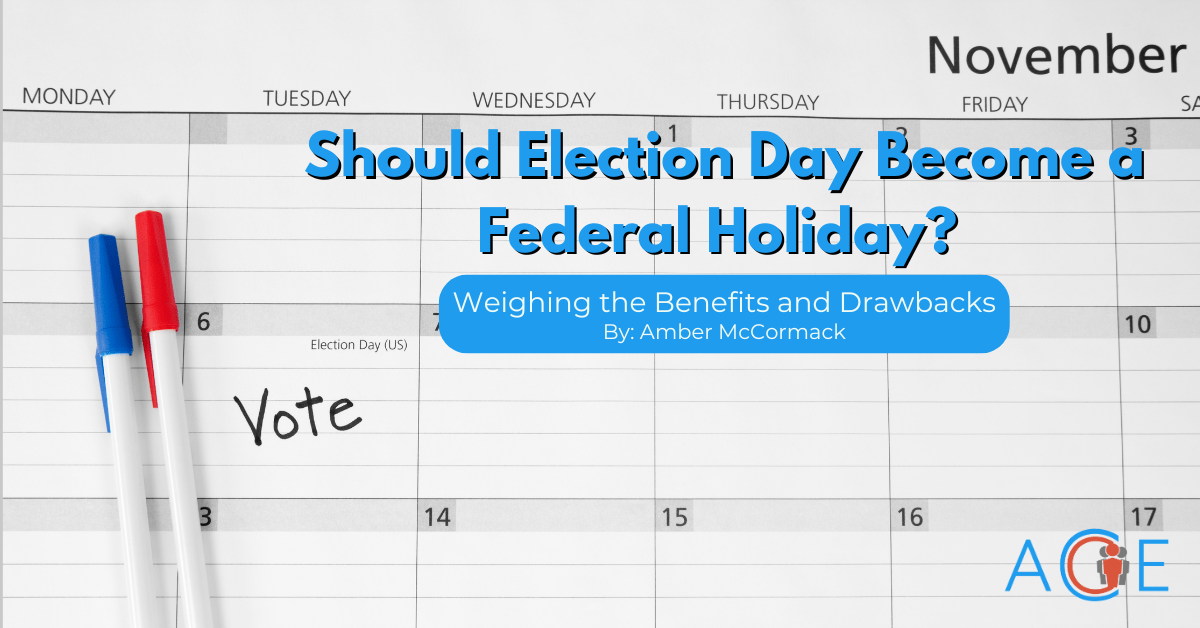Is it time to make Election Day a federal holiday? 🗳️ Some say it would boost voter turnout and align the U.S. with other democracies, while others argue it could create challenges for hourly workers and cost millions. Dive into the debate over whether a federal voting holiday is the best way to strengthen democracy or if there are better solutions. Check out the full breakdown!



Specifically, which problem do you think that ranked choice proponents are incorrect about?
Ranked choice voting does one thing, allows people to vote for the candidates they actually want and that’s it. All kinds of people try to shoehorn in other ideas, but at the end of the day the one and only problem its intensed to solve is people having to vote for candidates they don’t like.
See, it’s that one thing you mentioned.
The voting for the candidates people actually want.
That’s what it doesn’t actually do.
What Ranked Choice actually does is remove non-viable third parties from the election. That’s it. You can throw a sympathy vote over to the third party of your choice, but the next line on the ballot will be the major party candidate, because you certainly don’t want the other side to win. Say you throw a vote for the Greens, but your next choice is going to be the main ticket Dem, or else you risk the Republicans winning.
The problem comes when that third party just reaches viability. See, if the Greens are eliminated first, all the votes on the ticket then go to the Dem, but if somehow the Greens slip past the Dems, then the Dems are eliminated first, and the Dem first voters likely didn’t list the Greens as their next choice.
And here’s the thing. Republicans know that if the Greens knock out the Dems, then Republicans win. So a chunk of the Republican base strategically vote for the Greens as their first choice, and Republican as their second. And by lowering the support for their own candidate, they’ve secured the election for that candidate. This is the only voting system in existence that lets you show less support to a candidate to help that candidate win.
Tell me that shit isn’t broken, and I’ll call you a liar.
And that’s just one of a dozen show stopping faults in that voting system.
The next is ballot exhaustion.
If you rate A then B then C, but they get knocked off the ballot B then C and then A, your votes for B and C are thrown out completely. So if literally every single vote listed B as their second choice, B would be eliminated even if they were universally acceptable to the voting public. But it doesn’t matter, they were eliminated in an earlier round so universal support just isn’t looked at.
And finally, what’s the little issue of the rankings themselves. All we know is that you prefer A to B, and B to C. But how much do you actually prefer A to B by. and is that the same amount that you prefer B to C by.
Do you rate A and B as mostly the same but then rate C as a sort of horrible monster who you only begrudgingly support? We don’t know because that info isn’t collected on the ballot. STAR fixes that one, each candidate can have the same score in STAR, and with the scale going 0-5 you can get somewhat granular with your preferences.
If a majority of people vote Republican and they win, that’s a good thing. It seems like you don’t really understand ranked choice voting. It’s not perfect but it’s absolutely better than our current system.
I do understand Ranked Choice, and understand that it’s actually worse than our current system except for one small area. And that’s the elimination of non-viable spoiler parties.
Ranked Choice eliminates them from consideration.
As to its real world application, Ranked Choice is constantly fucking up elections.
https://electowiki.org/wiki/2009_Burlington_mayoral_election
If you’ll notice in that breakdown, the number of exhausted ballots was twice the margin of victory.
All this stems from the fact that RCV is really just First Past the Post, but done a bunch of times on a single ballot.
You cannot solve the problems of plurality by iterating plurality.
It’s a bad system that is, in many ways, worse than the one we already have.